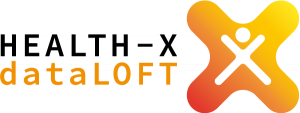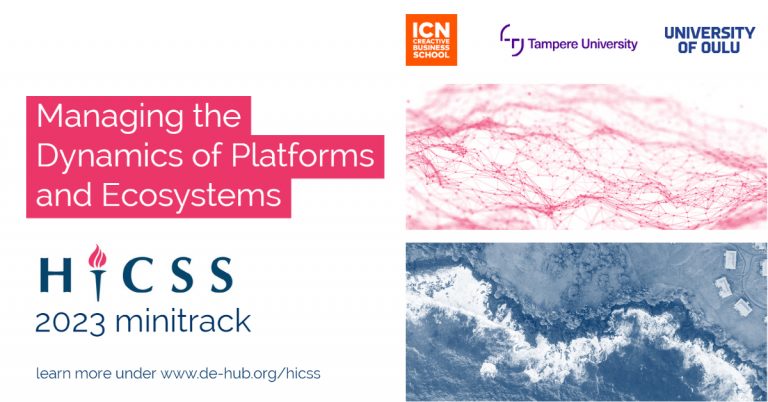It is well understood that, in order to compete and survive, organizations have to consider ecosystem-centric perspectives. Platforms play a central role in the rapid emergence of this type of organization and the proliferation of digital technologies (Gawer 2021, de Reuver et al. 2018, van Dijck 2018). As we enter a “digital first” economy (Baskerville et al. 2020), platforms collect more and more data (Aaltonen et al. 2020) and utilize it to produce superior machine learning applications, further cementing market dominance. At the same time, the introduction of a “Web 3.0” promises an increasingly decentralized digital infrastructure from blockchain technologies that would affect platforms.Today, however, platform providers like Amazon, Meta, or Apple have become dominant actors in their own industry, but also influence dynamics in complementary markets (e.g., Cusumano et al. 2019). Their influence on industries and society has changed over time and so has policy makers’ attention (Khan et al. 2019) on these actors. In this environment, platform providers legitimize actions (Garud et al. 2020; Taeuscher & Rothe 2021) not only on their markets, i.e., with users and complementors, but also with the broader society, including investors and regulators.
Although understanding the value and importance of platforms and ecosystems across various industries and domains has grown significantly over the years, there is still a paucity of research examining dynamic and evolutionary aspects when it comes to their management and their impact. We believe that studying management, dynamics and impact of platforms is of tremendous societal importance and current technological developments provide a plethora of rich empirical settings. We invite authors to submit their research on the impact of actors on their ecosystem and beyond, and urge them to clearly identify the actor level, e.g., individual managers, teams, firms. Building on previous years’ experience, we seek contributions that focus on the “dynamic” aspects of platforms and ecosystems, in their organization, participation and impacts.
For the minitrack call, we encourage topics of interest associated with such inquiries and beyond:
- How do actors transform organizations and societies with platforms and ecosystems, and what are the (un)intended consequences?
- How do actors manage the dynamics of platform and ecosystem emergence, and what are the mechanisms driving their evolution?
- How do actors intervene to adapt platforms and ecosystems to changes in the technological, social, economic, ecologic, or political environment?
- How can ecosystem actors – from complementors to individual users – succeed within these dynamics and manage their consequences?
- How are taxonomies, vocabularies and ontologies used to describe platforms and ecosystems changing?
- How can new data and methods – including but not limited to dynamic analytics, visualization, and decision making – assist actors in understanding the dynamics of platforms and ecosystems?
- What new roles for actors are emerging in management and orchestration roles in the platform age?
- What approaches are actors finding useful for controlling underlying mechanisms for dynamics, such as network effects, to mitigate unintended consequences?
The minitrack seeks contributions that problematize or build on diverse theoretical backgrounds such as management science, information systems, computer science, decision science, system science, organizational design, policy making, complexity and behavioral economics to continue the scholarly exploration of concepts, theories, models, and tools for managing platforms and ecosystems. We are open to a wide set of methodological approaches including empirical research, case-based research, field studies, design science, behavioral decision-making experiments, and conceptual research. We encourage collaboration between academia, industry, and policy making and welcome submissions from industry and around the world.
Bibliography
- Baskerville, R., Myers, M. D., & Yoo, Y. (2020). Digital First: The Ontological Reversal and New Challenges for IS Research. MIS Quarterly, 44(2), 509-523.
- Cusumano, M. A., Gawer, A., & Yoffie, D. B. (2019). The business of platforms: Strategy in the age of digital competition, innovation, and power (pp. 1-309). New York: Harper Business.
- de Reuver, M., Sørensen, C., & Basole, R. C. (2018). The digital platform: a research agenda. Journal of Information Technology, 33(2), 124-135.
- Gawer, A. (2021). Digital platforms’ boundaries: The interplay of firm scope, platform sides, and digital interfaces. Long Range Planning, 54(5), 102045.
- Garud, R., Kumaraswamy, A., Roberts, A., & Xu, L. (2022). Liminal movement by digital platform‐based sharing economy ventures: The case of Uber Technologies. Strategic Management Journal, 43(3), 447-475.
- Russell, M., Rothe, H., & Huhtamäki, J. (2021). Introduction to the Minitrack on Managing the Dynamics of Platforms and Ecosystems. In Proceedings of the 54th Hawaii International Conference on System Sciences (p. 6109).
- Taeuscher, K., & Rothe, H. (2021). Optimal distinctiveness in platform markets: Leveraging complementors as legitimacy buffers. Strategic Management Journal, 42(2), 435-461.
- Khan, L. M. (2019). The separation of platforms and commerce. Columbia Law Review, 119(4), 973-1098.
- Van Dijck, J., Poell, T., & De Waal, M. (2018). The platform society: Public values in a connective world. Oxford University Press.




